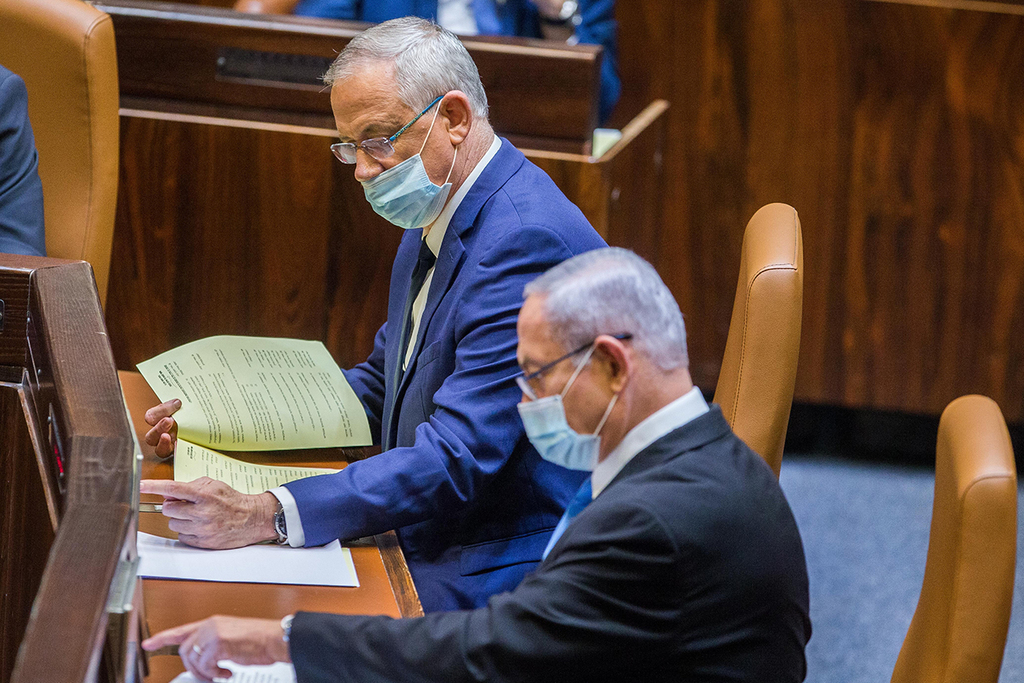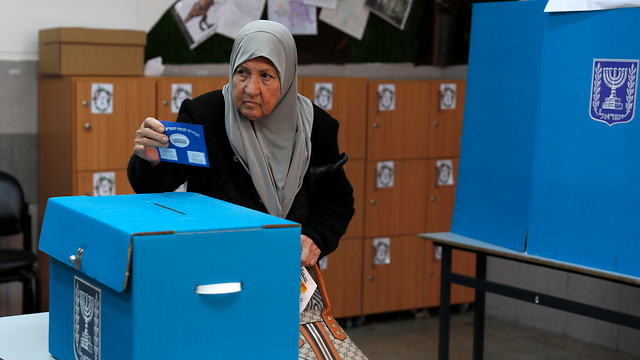Any improvement in relations between Jews and Arabs in Israel is to be commended, and not least of all, a political alliance.
But Benjamin Netanyahu's new relationship with the Islamic Movement southern branch, a part of the predominately Arab Joint List Knesset faction, should not be confused with a change in the prime minister's opinion of any political cooperation with Arab legislators that could one day result in a coalition to unseat him.
3 View gallery


Arab MK Mansour Abbas and Prime Minister Benjamin Netanyahu
(Photos: Reuters, Elad Gershgoren)
Netanyahu has always demonized the Joint List and labeled any political alliance with it as no less than treason, citing its members' support for the Palestinian national cause and accusing them of backing terrorism.
His budding friendship with Mansour Abbas, leader of the Ra'am faction of the Joint List alliance, is motivated by the desire to win votes outside his natural right-wing coalition.
The prime minister is seeking more support after Blue & White, which is part of his coalition under the leadership of Defense Minister Benny Gantz, blocked any attempted legislation to keep Netanyahu out of jail for corruption. The move prompted immediate criticism from those who regularly oppose the prime minister.
3 View gallery


Defense Minister Benny Gantz and Prime Minister Benjamin Netanyahu in the Knesset
(Photo: Oren Ben Hakoon)
Even so, Abbas is the most moderate of all Arab MKs when it comes to cooperation with the government and himself has never been in the crosshairs of Netanyahu's base.
Ra'am holds conservative views stemming from its Islamic roots and are similar to those held by the ultra-Orthodox parties. Unlike others in the Joint List alliance, Abbas' party does not hold nationalist or anti-Israeli positions and any success in swaying the other factions to a more moderate approach would be a welcome change.
Public opinion polls have shown there is a schism between the needs and wants of the Arab population and the agenda promoted by its leaders - and if Abbas is prepared to close that gap, more power to him.
3 View gallery


An Israeli woman votes in the Arab city of Taibeh in last year's elections
(Photo: EPA)
The Arab sector is in the midst of a debate on the new direction Abbas appears to have taken, bringing him closer to Netanyahu and even being willing to supply votes to push through laws that would not otherwise have a majority in the Knesset.
Netanyahu has built his political base on anti-Arab tropes such as the one on Election Day 2015, when he claimed that "Arab voters are heading to the polling stations in droves, bussed by the left." And now he is opening the door for other Jewish and Arab politicians to cooperate.
It may not have been the prime minister's intention, but it would be a step in the right direction for the country at large.

